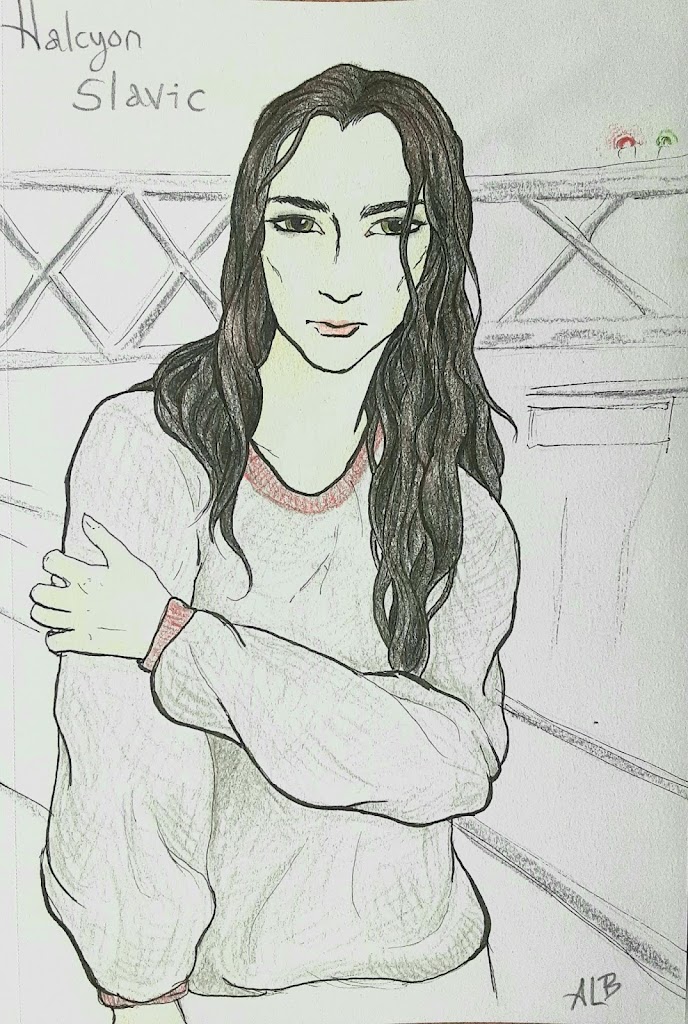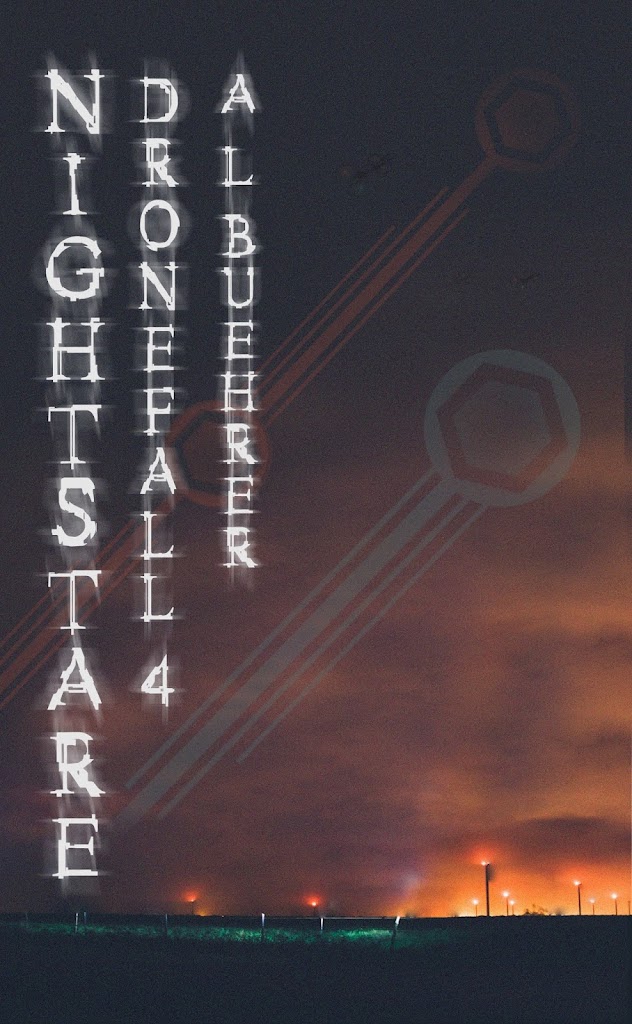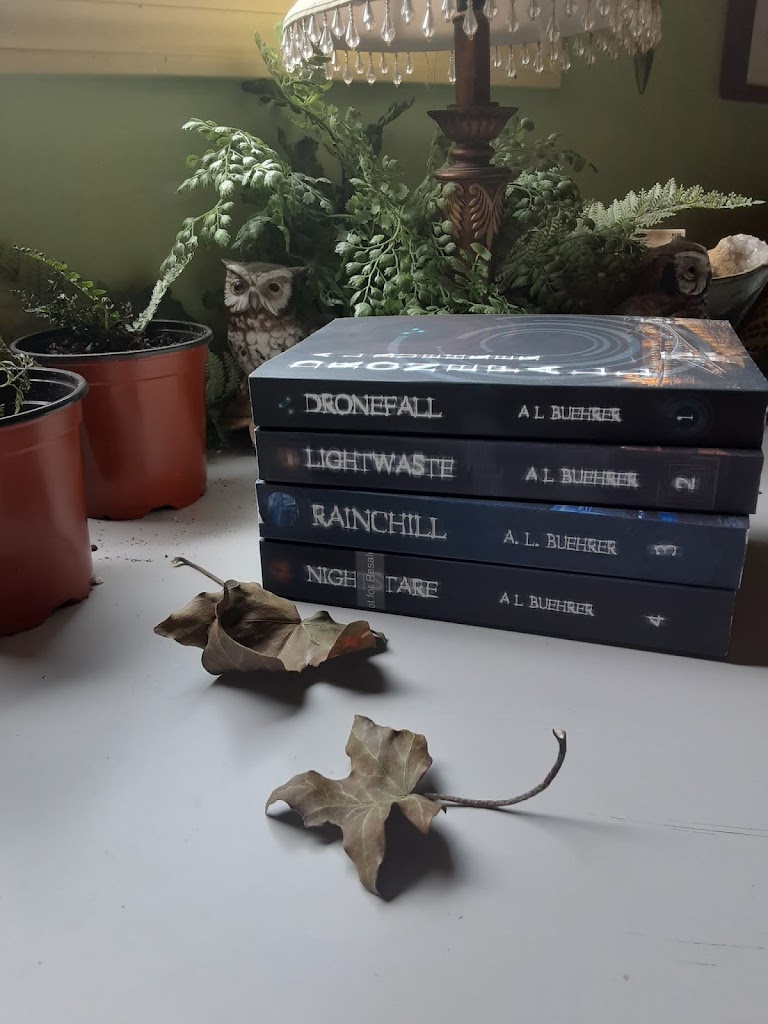So, Nightstare launched last week and you already want to know what I’m doing next? That’s kind of like when you graduate from high-school and all people can talk about is what college you’re going to. It’s kind of a terrible phenomenon, if you stop and think about it, but that’s how humans are, always… Continue reading What’s Next?
Month: May 2021
Nighstare Launch Wrap-Up
Well, this has been quite a week. I feel oddly productive right now. We’re four whole books in now. We are two-thirds of the way through the Dronefall series. The plot is thickening, and so are the books. Each one has been a little longer than the last, as the sub-plots explode and expand. We’re… Continue reading Nighstare Launch Wrap-Up
Dronefall Character Art!
Let’s pretend it’s yesterday, when I said this “special surprise” post was going to be published. The moment I typed that phrase at the end of Thursday’s post I know I was somehow going to end up late with this post, but anyway. For the first time ever, I’m releasing character art—made by me—of… Continue reading Dronefall Character Art!
Q&A Time
We’re halfway through the launch celebration for Dronefall Four, Nightstare! This had been a great week. I hope you all are feeling as energized as I am right now. Well, you guys sent me some good questions, so let’s jump right in, shall we? What was your first glimmer of inspiration for… Continue reading Q&A Time
Not Really the Post I Had Planned, But Hey
Yesterday, I set about making a few little changes to the cover for Nightstare—for the second time. I’d wrestled with it before. I thought I should brighten up a few things, make a word-change on the BCC, and shrink the logline down a bit, along with another little change on a spine element. I got… Continue reading Not Really the Post I Had Planned, But Hey
Nightstare Cover & Blurb Reveal!
Everybody ready? Today’s the day! Today I’m showing you the cover and blurb for my newest book, Dronefall Four, Nightstare. But you probably remember that, from my last post, yesterday, so let’s go. Keep scrolling. Almost there. I know you Dronefall readers know how to wait for it. … Continue reading Nightstare Cover & Blurb Reveal!
The Proof is Here!
Today, I got the paperback proof for the long-awaited fourth book of the Dronefall series. Do you know what that means? It means it’s actually happening. The series is moving forward at last, and you guys are going to see my latest novel before the end of the month. And the end of the… Continue reading The Proof is Here!



